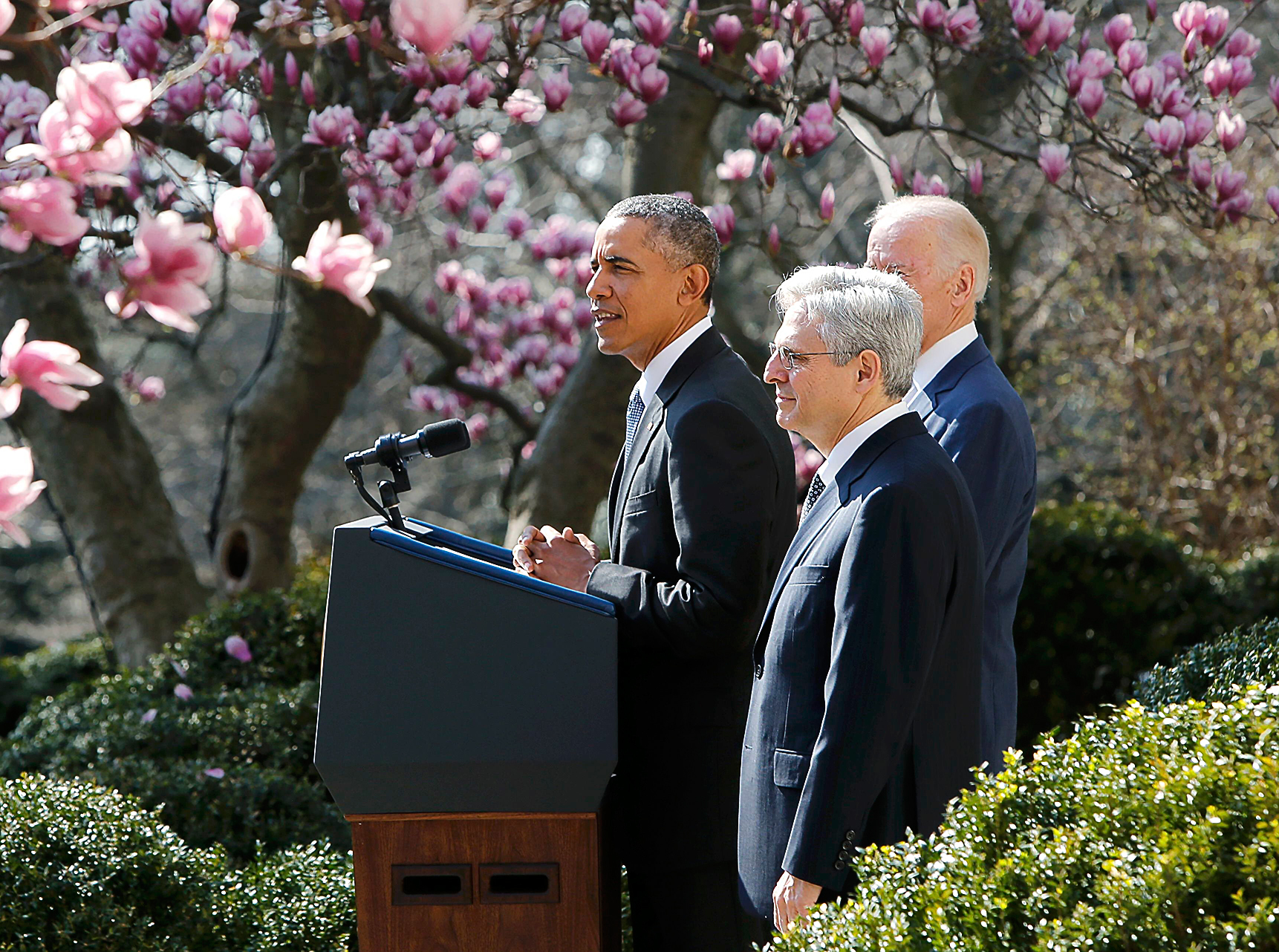
Merrick Garland, Chief Judge of the D.C. Circuit, had twice made it to the final round of the Supreme Court sweepstakes and twice been sent home empty-handed. Barack Obama considered him in 2009 but wound up picking Sonia Sotomayor. He took a hard look at Garland a year later, but instead tapped Elena Kagan for the job. By the time Justice Antonin Scalia died in February, Garland was thought at age 63 to be too old for a third shot.
So both the President and the judge had something to be grateful for on March 16, when Obama nominated Garland as the 101st Associate Justice. Garland, said Obama, is “widely recognized not only as one of America’s sharpest legal minds but someone who brings to his work a spirit of decency, modesty, integrity, evenhandedness and excellence.” Choking up as he thanked the President, Garland invoked the spirit of his late father, who taught him about “fair dealing” and “hard work” as a boy growing up in Chicago.
Garland will need both in the weeks and months ahead because it is far from certain how–or even whether–he can be confirmed. Senate Republicans have made it clear that they will not hold hearings on Garland before the presidential election. Their arguments are many, varied and partisan: there is no rush, they say, because the court can continue its work with eight members just fine. They argue that it would be unwise to subject Garland to a brutal nominating process in the middle of an election year. Voters need to pick the next President, they add.
But Republican aides, speaking privately, admit that this calculus changes the minute the election is over. If the GOP loses the Senate to the Democrats this fall and voters choose Hillary Clinton as the next President, GOP leader Mitch McConnell will likely pivot to taking up the nomination in a lame-duck session in November and December, holding hearings and a possible vote on Garland before the end of the year. And even if the Democrats do not take the Senate, a lame-duck confirmation still seems possible. As one Republican consultant who speaks regularly with GOP leaders put it, “They will go ahead and confirm Merrick if they think Hillary would nominate a more liberal judge next year.”
Learned, curious and moderate in all things, Garland is easier for Republicans to vote for than some of the other jurists Obama was considering–or that Clinton might prefer. He oversaw the complicated federal investigations in the Unabomber and Oklahoma City bombing cases in the 1990s, which won him allies in the law-enforcement world. He was confirmed as a circuit court judge by a 3-to-1 Senate margin in 1997 and has had a strong ally in Republican Senator Orrin Hatch of Utah. Garland has good friends across the political spectrum and on both sides of the current 4-4 Supreme Court divide. He is known at the top law schools for attracting the best legal clerks and even now provides many of the Justices with theirs–but only after they spend a year or two in his chambers a few blocks away.
But if by picking Garland, Obama is offering an olive branch to the Republicans, he is also trying to drain some of the ugliness out of the dysfunctional Supreme Court nominating process. For much of the past 30 years, thanks to both parties, the court has been dragged down repeatedly into partisan politics. Members of the court are tired of it, and Chief Justice John Roberts is keen to depoliticize the nomination process. A judge as moderate and well-regarded as Garland may give Roberts and Obama a rare path through the political wilderness, if not before the election then after it. “It is tempting to make this confirmation process simply an extension of our divided politics,” Obama said. “But to go down that path would be wrong. … Our Supreme Court … is supposed to be above politics, it has to be, and it should stay that way.”
It may be some time before that comes to pass. Within minutes of Garland’s nomination, some Senate Republicans said they would not even meet with the nominee before the election. Democrats vowed to use that refusal as a weapon in the fall campaign; Republicans are betting that, at least for now, delay won’t hurt them very much.
–Reported by MASSIMO CALABRESI and JAY NEWTON-SMALL/WASHINGTON
More Must-Reads from TIME
- Donald Trump Is TIME's 2024 Person of the Year
- Why We Chose Trump as Person of the Year
- Is Intermittent Fasting Good or Bad for You?
- The 100 Must-Read Books of 2024
- The 20 Best Christmas TV Episodes
- Column: If Optimism Feels Ridiculous Now, Try Hope
- The Future of Climate Action Is Trade Policy
- Merle Bombardieri Is Helping People Make the Baby Decision
Contact us at letters@time.com